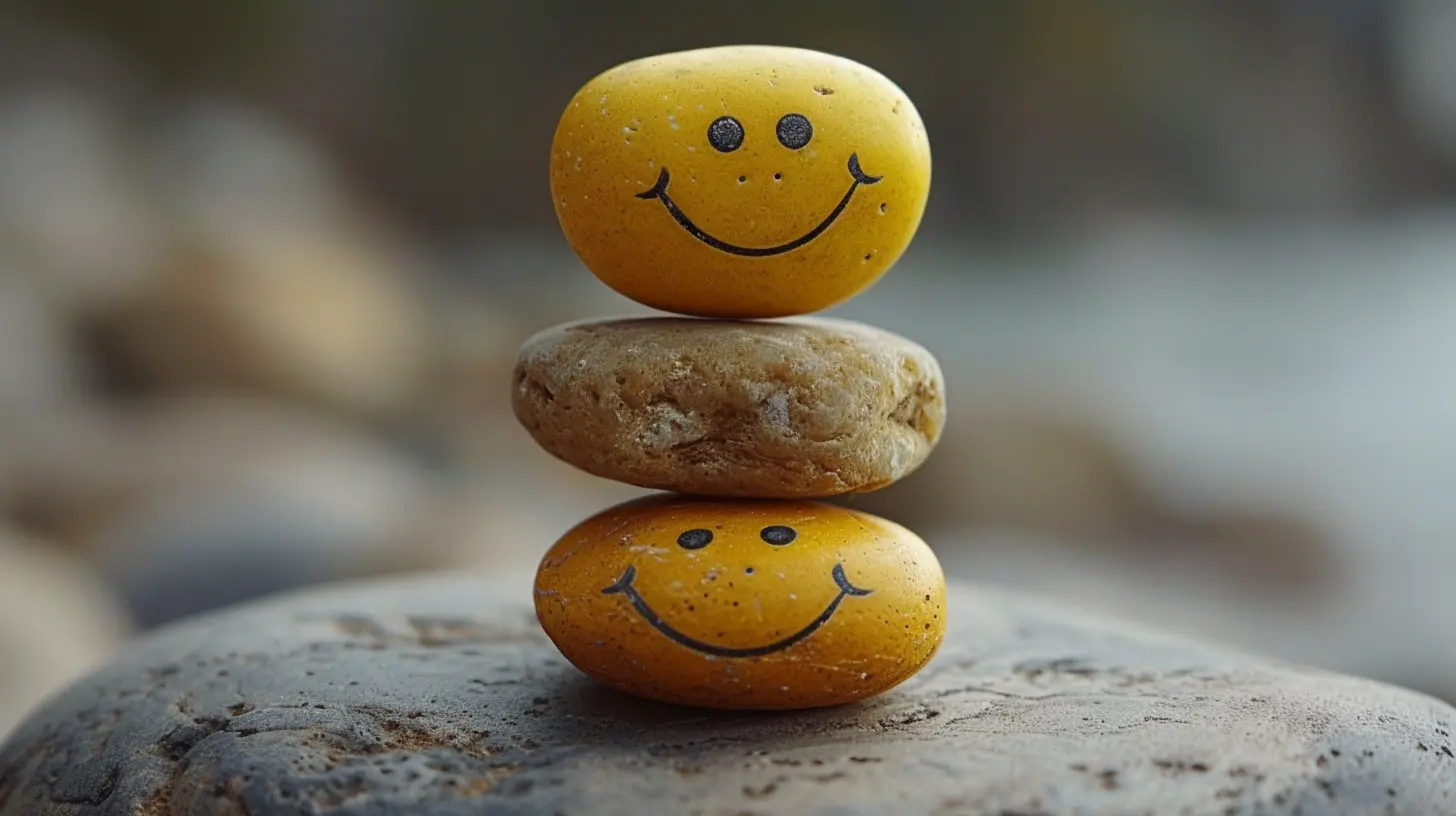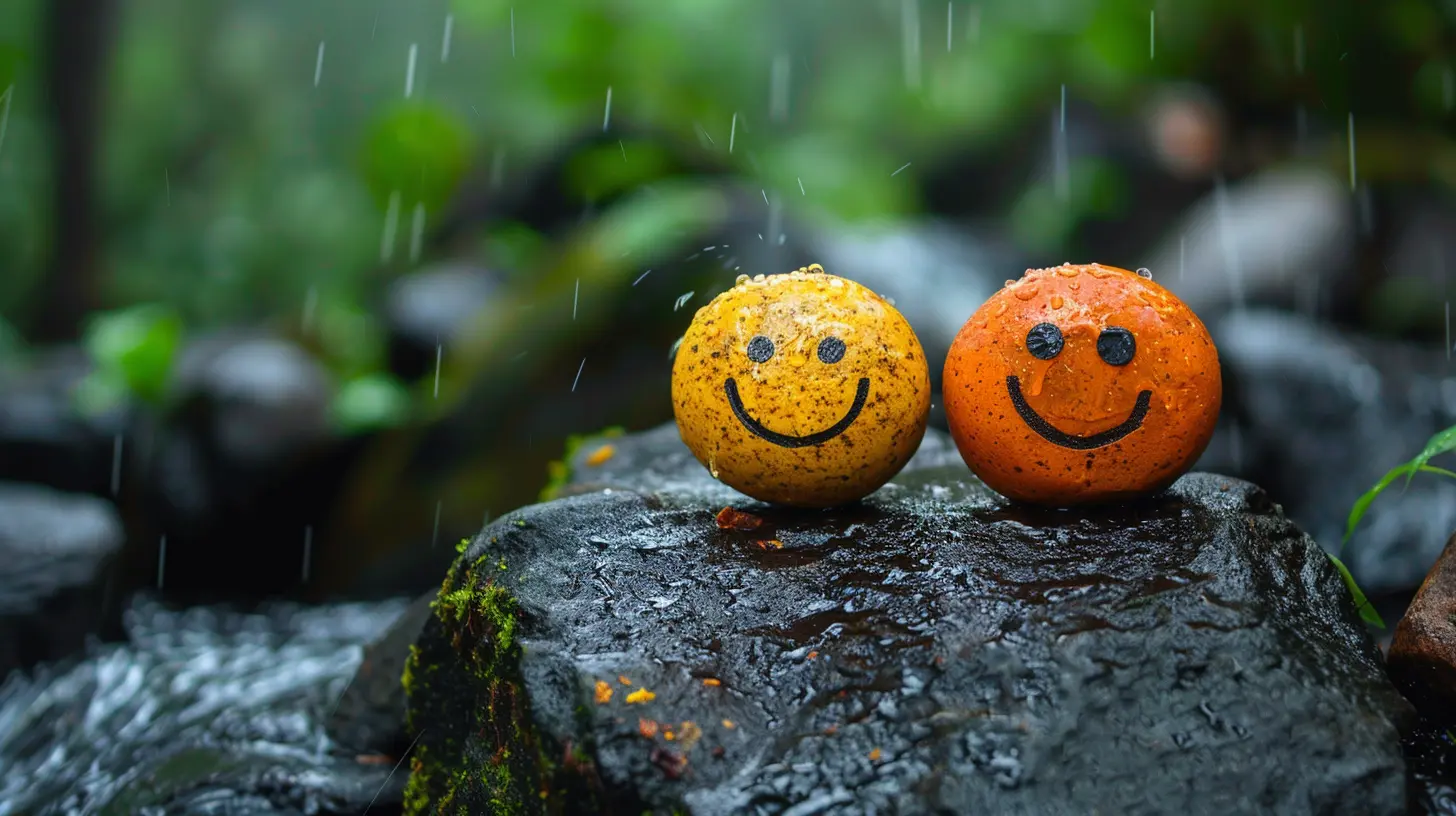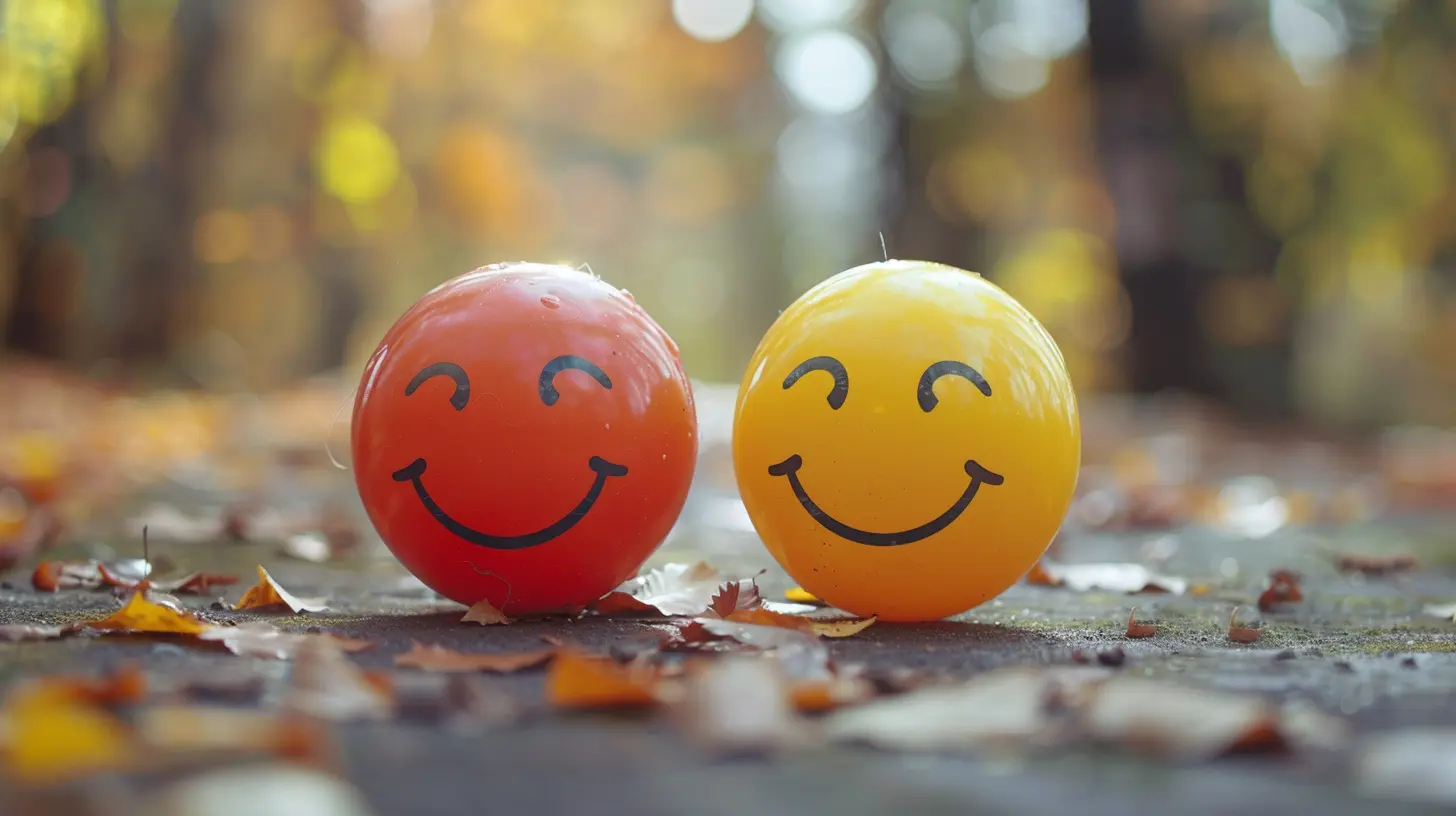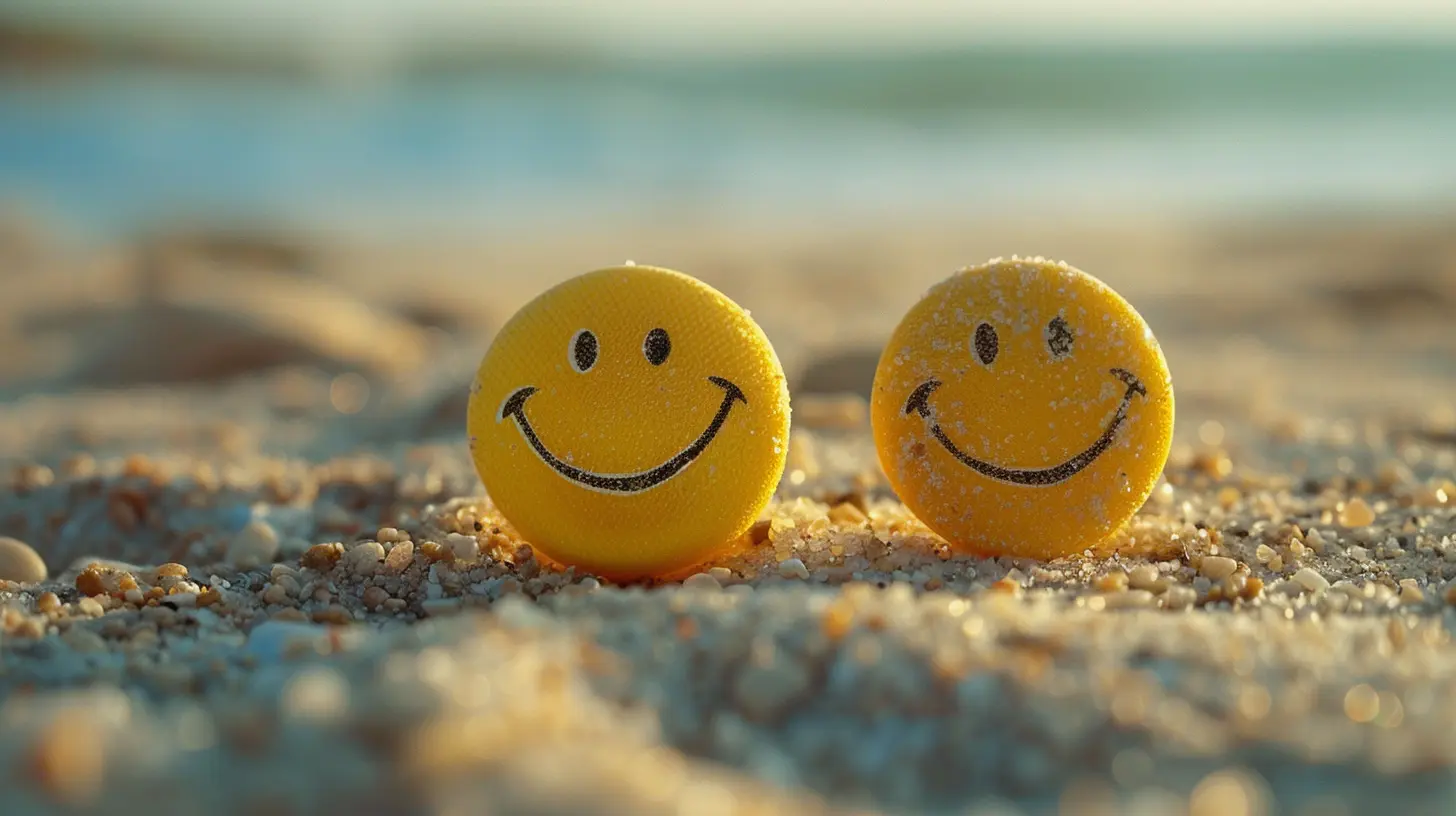Why Comparison Is the Thief of Joy: A Psychological Analysis
19 November 2025
You know that feeling when you’re scrolling through social media, munching on leftover pizza, and suddenly BAM—there’s your high school classmate, now a world-traveling entrepreneur with abs, a French bulldog in a sweater, and a partner who looks like they walked off a magazine cover?
Yeah. That’s the exact moment joy packs up its bags and walks out the door.
We’ve all heard the saying “Comparison is the thief of joy,” but what does that really mean from a psychological perspective? Why does comparing ourselves to others feel like emotional self-sabotage—and why can’t we stop doing it?
Take a deep breath, put the phone down (unless you’re reading this on it), and let’s dive into the psychology behind this joy-thieving habit.
Table of Contents
1. What Does “Comparison is the Thief of Joy” Really Mean?2. The Psychology Behind Comparison
3. Types of Comparison (Because Yes, There’s More Than One)
4. How Social Media Supercharges Comparison
5. Why Comparison Actually Feeds Your Anxiety
6. The “Highlight Reel” Effect
7. The Inner Critic: Your Own Worst Instagram Filter
8. Joy vs. Comparison: A Battle for the Brain
9. How to Stop Comparing and Start Actually Living
10. Your Joy Deserves Better

What Does “Comparison is the Thief of Joy” Really Mean?
This gem of wisdom is often credited to Theodore Roosevelt, who, let’s be honest, didn’t even have to deal with influencers or avocado toast. Still, the dude had a point. The phrase boils down to this: when you constantly measure your life against others’, you’re robbing yourself of the ability to appreciate what you have.It’s like ordering your favorite dessert, only to look over and see someone else’s cake, suddenly convincing yourself that your molten lava chocolate isn’t gooey enough. Listen, your cake was amazing two seconds ago. What changed? Not your cake—just your attention.
The Psychology Behind Comparison
Humans are wired for comparison. Back in the caveman days, comparing yourself to a fellow hunter was useful. You could either step up your game or realize you should probably sit this one out and focus on gathering berries. It was survival, not self-sabotage.But in today’s world, there are no sabertooth tigers—just influencers, overachievers, and people who pretend to meditate every morning while we hit snooze seventeen times.
Social comparison theory, coined by psychologist Leon Festinger in 1954, says we evaluate ourselves by comparing to others. This isn’t inherently bad—but it becomes harmful when we always compare upward. And by “upward,” I mean looking at people who appear (emphasis on appear) to be doing better.
We rarely compare downwards, unless we’re trying to feel temporarily better about ourselves. “Well, at least I’m not that guy.” Oof. Not our best moment.
Types of Comparison (Because Yes, There’s More Than One)
Not all comparisons are created equal. Let’s break ‘em down:1. Upward Comparison
You compare yourself to someone you think is doing better. This is the emotional pothole of self-esteem. Sure, it can motivate you. Or it can crush your spirit faster than a middle school gym class dodgeball.2. Downward Comparison
This one feels kinda gross but is surprisingly common. You compare yourself to someone seemingly worse off to feel better. Temporary ego boost? Maybe. Long-term happiness? Not so much.3. Lateral (or Horizontal) Comparison
You’re comparing yourself to your peers—people who are supposedly “on your level.” This one hits differently because you feel like you’re being left behind in a race you didn’t even know you entered.How Social Media Supercharges Comparison
Let’s be real—social media is like a 24/7 comparison buffet. You get a curated highlight reel of everyone’s best moments, finest angles, and photoshopped sunsets.You’re comparing your behind-the-scenes to someone else's Oscars night. It’s not a fair fight.
Platforms like Instagram and TikTok are built to show you what’s trending, what’s viral, and what’s popular—basically, everything you’re not doing right now.
And when those likes and follows start looking like social currency, it’s no wonder you feel broke.
Why Comparison Actually Feeds Your Anxiety
Ever noticed how comparing yourself to others usually ends in one of two ways?1. You feel like trash.
2. You feel superior… briefly.
Neither is particularly healthy.
Comparison fuels anxiety because it creates an impossible benchmark based on incomplete information. You’re not just competing with other people; you’re competing with the best version of strangers.
This constant pressure amps up cortisol levels—hello, stress hormone—and suddenly you’re deep in a spiral where even your pet seems more accomplished than you.
The “Highlight Reel” Effect
Let’s say it louder for the people in the back: people only show you what they want you to see.You didn’t see the 67 selfies they took before posting that “effortless” one. You didn’t see the panic attack the day before that “spontaneous” vacation. And you definitely didn’t see the credit card debt behind those shiny purchases.
Their highlight reel is not your reality. Comparing yourself to it is like feeling bad because you can’t fly like Superman. It’s fiction, not failure.
The Inner Critic: Your Own Worst Instagram Filter
You’ve got a voice inside your head. No, not that voice telling you to eat chips at midnight (though, honestly, valid). I’m talking about your inner critic—the one that says you’re not doing enough, being enough, or achieving enough.Comparison feeds this inner critic like it’s on an emotional all-you-can-eat buffet. And once it’s full, it starts belching out self-doubt and imposter syndrome like a toxic dragon.
Here’s the thing: your inner critic is not objective. It’s your anxiety in a party hat. And it throws confetti every time you feel less than.
Joy vs. Comparison: A Battle for the Brain
Joy lives in the present. It’s eating a warm cookie. Laughing so hard you snort. Dancing like no one’s watching (and praying no one actually is).But comparison yanks you out of the present and plops you down in “What-If Land.”
- What if I were richer?
- What if I were skinnier?
- What if I had a six-pack and a yacht and an espresso machine that speaks Italian?
Your brain can’t sit in two places at once. So when it's busy comparing, joy doesn’t get a seat at the table.
How to Stop Comparing and Start Actually Living
Okay, enough doom and gloom—what can you actually do to kick comparison to the curb and keep your joy intact?1. Practice Gratitude (Yes, It Really Works)
Gratitude sounds like a Pinterest cliché, but it’s basically kryptonite for comparison. When you focus on what you already have, you stop obsessing over what you don’t.Try writing down three things you’re grateful for every day. Spoiler: one of them can be good coffee. We’re not judging.
2. Curate Your Feed
Unfollow anyone who makes you feel like you’re perpetually behind. It’s not petty—it’s self-care. Follow people who inspire rather than incite envy.Your mental health > follower count.
3. Celebrate Your Wins (No Matter How Small)
Did you floss today? THAT’S A WIN.Celebrating small victories resets your focus on your own journey instead of someone else’s. Bonus: you feel more motivated to keep going.
4. Build Self-Awareness
When you catch yourself spiraling into comparison, pause. Ask yourself: “What am I feeling right now?” and “Why does this bother me?”Sometimes comparison is just your brain waving a red flag about your own unmet needs. That’s good info to have, right?
5. Embrace Your Own Timeline
You are not behind. You are not ahead. You’re just on your path.Some people peak at 16. Others peak at 60. Life isn’t a race; it’s more like bumper cars. Bumpy, unpredictable, and slightly ridiculous—but fun if you stop taking it so seriously.
Your Joy Deserves Better
At the end of the day, comparison is just a trick your brain plays when it forgets how awesome you already are.Joy is not reserved for the rich, the beautiful, or the hashtag-blessed. It’s available to anyone who stops scrolling long enough to notice the good stuff in their own life.
So next time you catch yourself comparing, remember this: You’re not falling behind. You’re just writing your own story—and honestly, it’s probably way more interesting than the filtered highlights of someone else’s.
Now go eat that cookie and enjoy it like you invented dessert.
all images in this post were generated using AI tools
Category:
Psychology Of HappinessAuthor:

Alexandra Butler
Discussion
rate this article
1 comments
Cadence Ross
Comparing ourselves to others is like measuring happiness with a ruler made of spaghetti!
November 20, 2025 at 5:38 PM

Alexandra Butler
That's a creative analogy! Indeed, comparing ourselves to others can distort our sense of joy, just like an impractical ruler can lead to inaccurate measurements.


